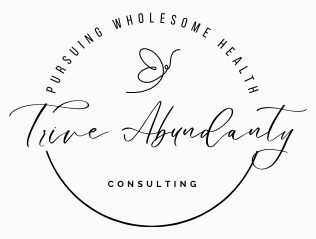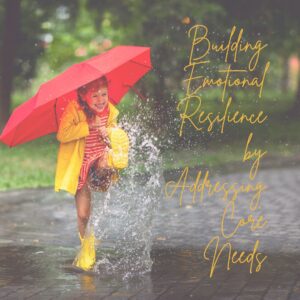This is post 29 in the Living Fully Alive blog series. Please consider reading the posts in the order they were published for the best learning experience.
Abi and Justin mentioned another study, where a group of students were academically tested before the experiment. The results were the same across the whole group. Then they split the students in two groups. One group was taught that they can grow their brain, that the more they use it and work it, the more they can grow it, that they have power over their IQ. The other group was taught nothing.
After a period of time, they tested everyone again.
The first group, which had been taught they had power over their brains, across the board tested better than the group that was taught noting about the power of their brains.
In a book titled Nature versus Nurture the case is made against vague compliments for the same reason as what was evidenced in the above study. They say that vague compliments don’t spur people on to excel. Let’s say someone was in a play and the compliment is, “You were great!” It’s not specific. But if compliments are given that show the person that it was something they did that you are complimenting, then they grow a belief system, that they have the power to actually repeat that situation and do well. In the performance example, the specific compliment could be, “I loved how you made eye contact and how you just went right on going even though you knew you made a mistake.” Or “I could hear every single line, you projected exceptionally well”. Or something like this. Vague means I don’t spell out to the person what they can do to reach success again. If you give specific compliments the kid can think of what to be powerful in and grow it.
Just telling a kid they are smart isn’t going to be very empowering, because they are going to fear that as soon as they do poorly they lose that smart status. Or at least there is a higher likelihood that some kids will take it that way. But if you tell them, “You persevered to find the answer you needed instead of giving up”, that shows them how they can be successful again.
Justin shared an example when he had an adult mentor who would hang out with him and play hoops with him, go on hikes, do projects etc. This person was older and much taller and stronger than Justin, who was only about 10 or so. Evidently this person did not understand the value of letting littles win sometimes. Every time he would just rub in that he was better, stronger, faster, whatever. It got so repetitive that Justin would stop trying and just laughed off the competition. He had learned he is powerless against this guy, he is more powerful than him. He called it the ‘what’s the point monster’. I wonder if you have met him before? I think I have…
The adult got frustrated with Justin, and asked him why he didn’t even try. Of course Justin didn’t have the communication skills he has now and didn’t want to offend the guy, so he shrugged it off as not really knowing why. But the reason he had stopped trying was because the other guy always won. He was discouraged and it impacted him, because he used this experience as a filter in many other areas of how he approached life for a long time.
When Abi first discovered that she had a victim mindset she asked a person how she could get rid of it. Apparently the answer had been to look up victory. She did not find it very helpful and decided to go on a journey to find out for herself how to get rid of it. Turns out she learned, in order to get the transformation she was looking for, she needed perseverance. She realized that had she just been given an answer, she would have not learned as much as thoroughly as going on the journey, persevering and finding. Giving up never gets progress. We need to keep showing up, we need to keep changing our mindsets, we cannot afford to get an easy out with excuses.
How do you know if you are living in powerlessness?
You might feel you are powerless as to what people think about you. This would have happened if you have given your allegorical ball of worth Abi introduced to us in the lesson about how we treat ourselves, to someone else who does not have the power to define your worth properly. Nobody other than God and you should have this worth, nobody else has the power to care for your worth. Asking others to define our worth or to be our source of worth, will render us powerless. We must not look to someone else to define our worth or success. We need to embrace that we can like ourselves even if others in our lives are upset.
You may feel like you have no power to choose. For instance, Justin had experienced a period of difficulty finding a job. After he finally got a job, he eventually ended up not liking it anymore and wanted to quit, but he had built a belief based on his previous experience, that there aren’t other options, that he won’t be able to find another job. As a result he felt he had no choice but to stay with the job he hated. This happened because he disqualified all the options he didn’t like because they would be painful. The truth was, he could quit his job, he just was going to need to be ready to deal with joblessness and lack of money if he didn’t find another job right away.
I have felt this way many times in my walk with God. I might be in a tough situation and something difficult is required of me, something involving sacrifice and pain. I could simply choose not to do it and walk away. But I have come so far with God and am literally like the disciples who said to Jesus, “Where would we go?” In this case, I don’t want to consider the other options because of my standards, which is a good thing. I am actually being powerful in choosing the hard thing, I just need to be aware that is what I am doing and that I do have other options, I just don’t choose them. I always have a choice. I just may not like some of the other options. It is very helpful though, to assess all other options, because we always have choices.
Even in relationships where the other person is doing things that are wrong, I have options. I can choose to embrace bitterness and unforgiveness until the other person decides to stop what they are doing. However, that is a powerless place because I am allowing them to influence me to choose something that will make me miserable and compromise my right to be healthy. It’s not easy in such a situation to choose to be powerful, to not react, but to respond in a healthy way, choosing to walk in integrity, in the identity I have in God instead of raging or feeling like I have no choice but to be angry or depressed. There is always another option. Not necessarily an easy one, in fact, usually a costly one, but a healthier one. I always have the power to choose to be healthy, even if others don’t change. I am in charge of me. I don’t have to choose what isn’t healthy.
This poses the question, “Am I actually willing to make the hard choices?”
In a relationship where one person is needy, you may also run into a different kind of helplessness, where you try everything you can, and it’s never enough for the other person. This is where we can choose to be ok even if the other person is not ok. We can stop controlling how the other person feels.
How is this happening with the people in my life? Am I not ok unless they are ok? Or am I choosing to react unhealthily because they are not getting with the program? Those are some great questions to explore and journal about.
It is a difficult concept to give them the freedom to choose destructive things. Since God gives me free choice, I should not take that choice from them. It’s just hard when their choices limit what we do as a team.
Here is an example of how I can be powerful in a family that does not do conflict well. I might just decide, “They don’t do it well, it never ends well, so I am just going to stop trying”. Or I could say, “My goal isn’t that my family does conflict well, because that would involve their cooperation. My goal is to have a voice for myself. I’m still going to speak up. It doesn’t matter if they respond well or not. I’m neither going to build resentment, nor be passive aggressive by stuffing and silencing my feelings. Instead I will be straight forward and they may not like it. But I won’t play by their rules or culture; rather I will be a good communicator.”
Sometimes powerlessness comes from rules we have. For instance, we may have certain rules of what it means to be successful. I need to pause here and write down what I believe it takes for me to be a good wife, a good teacher, a good mother, a good Christian, etc. I bet some of the rules I have involve others being happy with what I do. I need to redefine so that my success does not include others. It can create a rather hopeless situation for me if I can only succeed if others play their part. Success is me meeting goals despite others. Whatever they do has nothing to do with my success. If my success depends on others participating then I am in victim mentality.
If I do all the healthy things, that is success, even if the other party does not like me or respond well. I need to just allow others to be upset or rebellious or passive and know I did my best.
Below is a talk by Donald Miller. He has many good points about getting out of ‘life happening to me’ thinking and taking ownership of where we want to go. I hope you enjoy it.
To apply some of what this post introduced, pick one or more of the situations you identified in the last post’s activity where you found yourself with no choice, helpless, stuck. See if you can’t come up with a list of other choices that are available for each situation. If you find yourself having trouble coming up with options, I hear you! Maybe you could partner up with a friend and share a place each of you need a fresh perspective and brainstorm with each other.
You may also have to redefine your goals. If your goals depend on the cooperation of others, then you can set yourself up for feeling stuck. Find a way to pursue your values and dreams in such a way that you can still succeed even if others don’t want to participate.
To learn more about the Living Fully Alive course, please click on the hyperlink.







